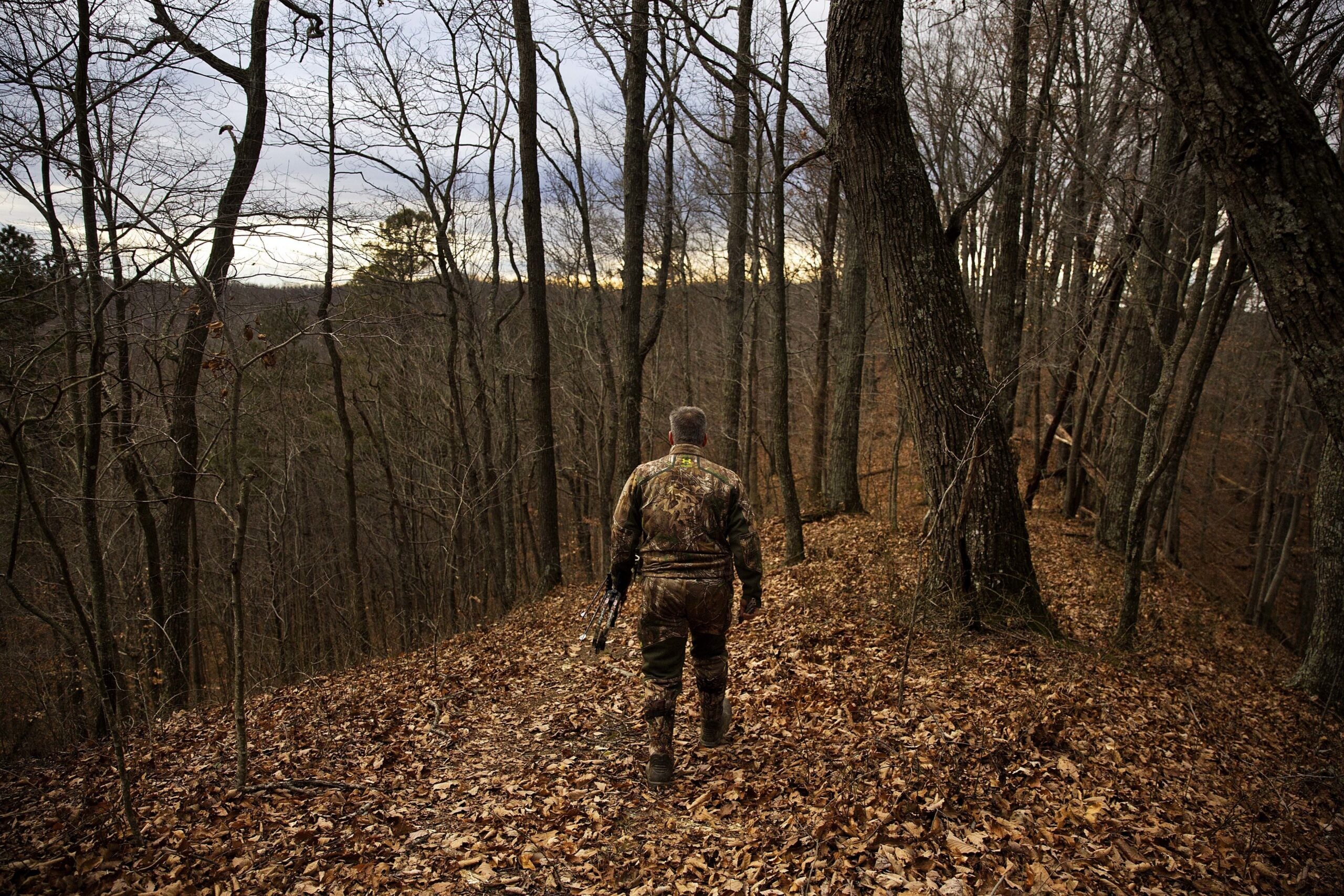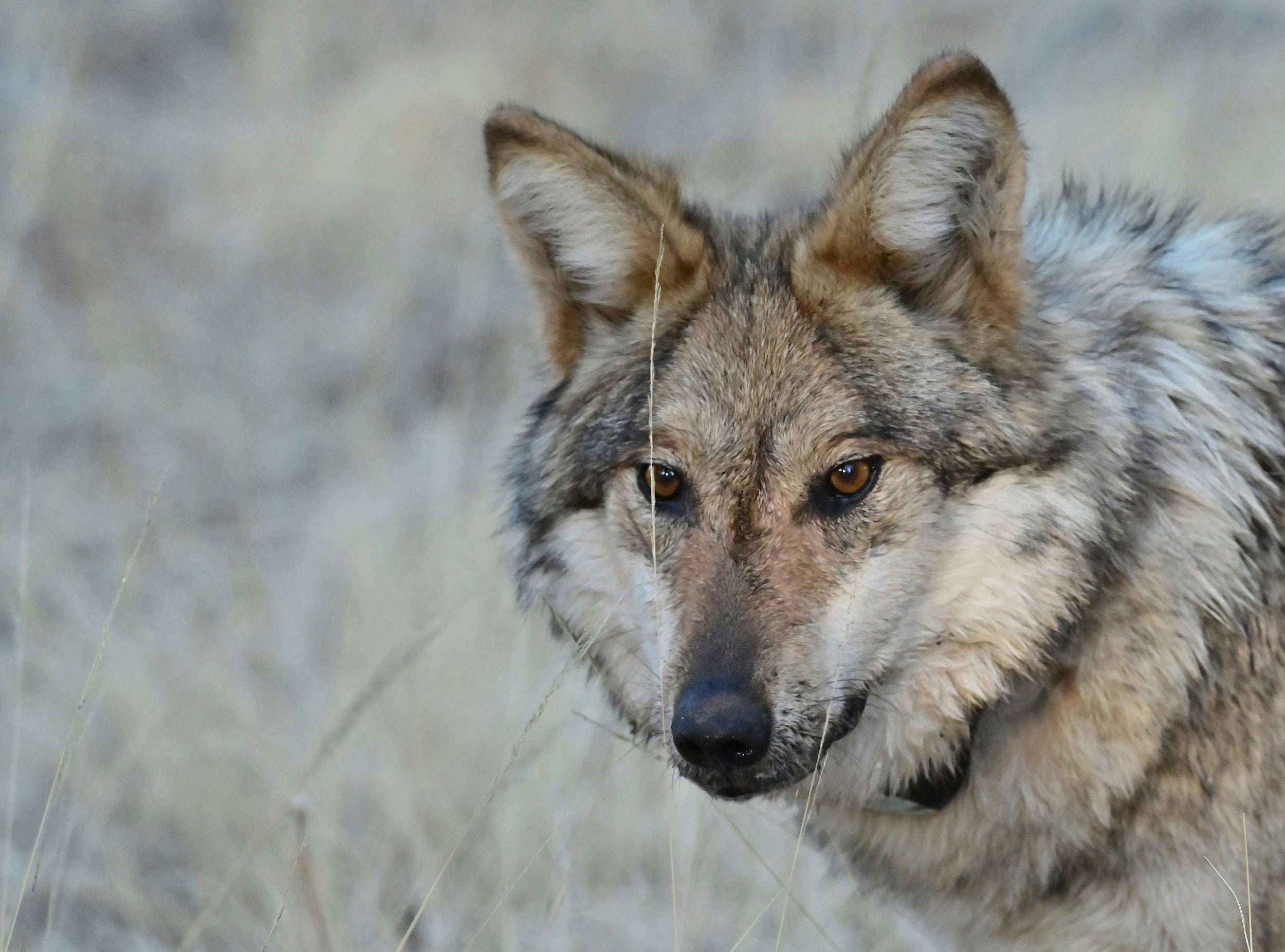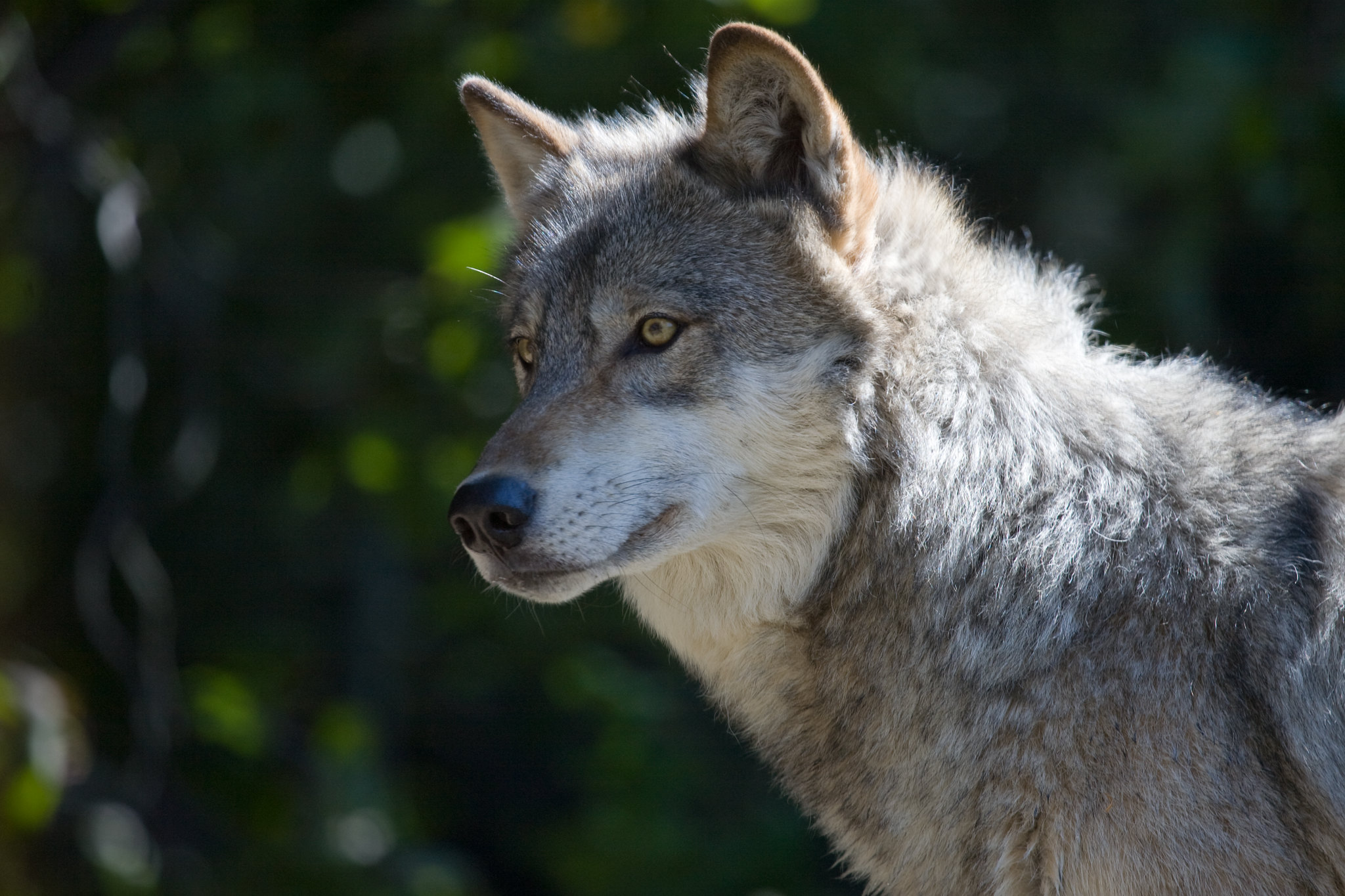Around 20 wildlife and animal protection groups want the U.S. Forest Service to ban the use of hounds for hunting in the Chequamegon-Nicolet National Forest after Wisconsin’s controversial wolf hunt two years ago.
The Center for Biological Diversity and Friends of the Wisconsin Wolf and Wildlife filed a petition Thursday with the federal agency to bar use of dogs to hunt black bears and other wildlife.
“I think that 2021 hunt really outlined what these houndsmen are capable of when it comes to wolves,” said Melissa Smith, executive director of Friends of the Wisconsin Wolf and Wildlife. “We know that hounds and wolves have terrible bloody conflict. Now that wolves in Wisconsin are federally protected again, we believe that the Forest Service needs to end this practice.”
News with a little more humanity
WPR’s “Wisconsin Today” newsletter keeps you connected to the state you love without feeling overwhelmed. No paywall. No agenda. No corporate filter.
In February 2021, hunters killed 218 wolves, or roughly 20 percent of the state’s wolf population, in less than three days, exceeding the quota for state-licensed hunters by nearly 100 wolves. The Wisconsin Department of Natural Resources has said the use of dogs provided an efficient means for hunters to kill wolves. The DNR issued 1,548 licenses during the February 2021 wolf hunt, and hunters using dogs killed 86 percent of all wolves taken.
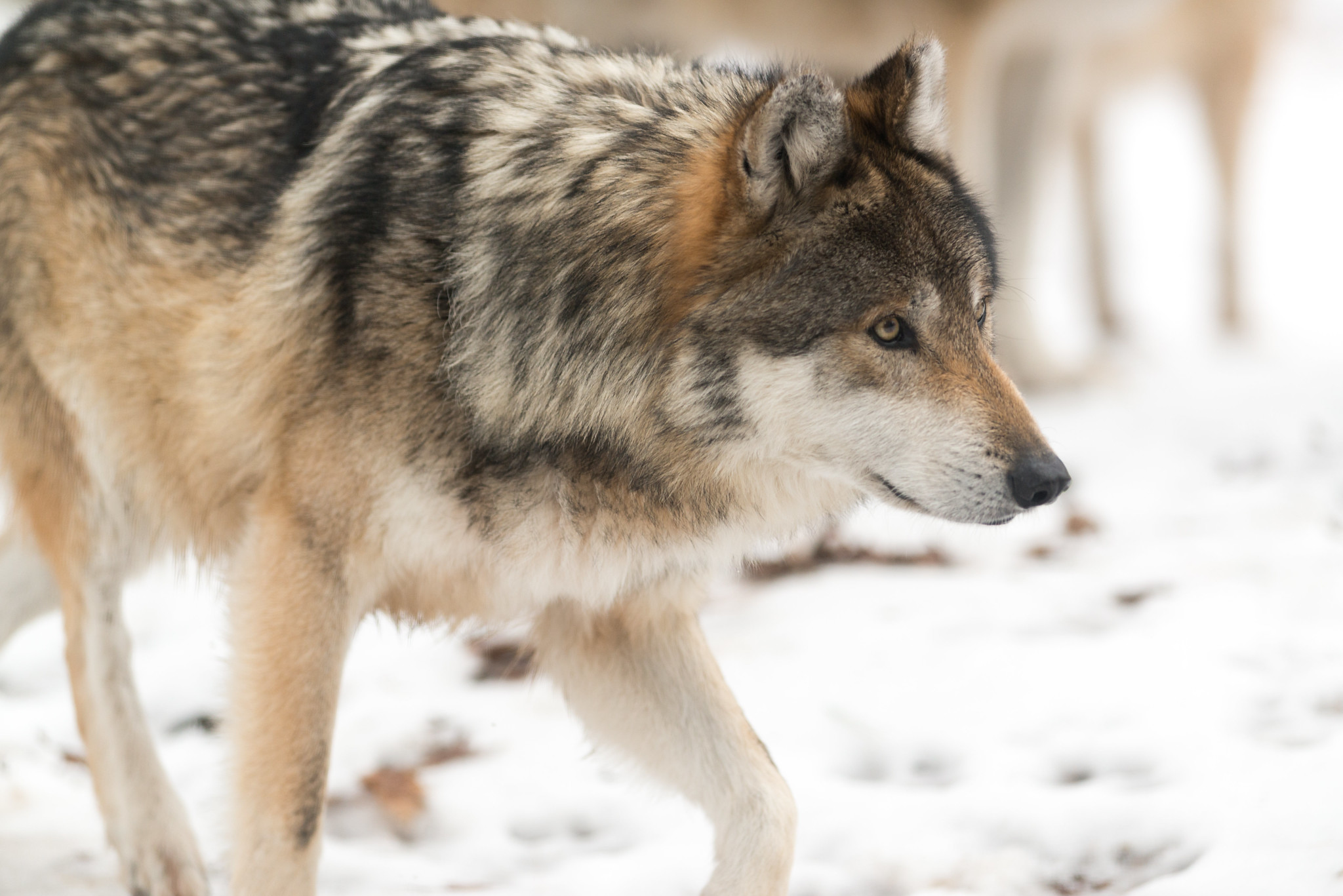
Hound hunters oppose the call to ban the use of hounds in the national forest, which spans 1.5 million acres in far northern Wisconsin. Matt Lallemont, a hound hunter and associate director with the Wisconsin Wildlife Federation, said in an email that hunting with the aid of hounds is legally protected in Wisconsin.
“Wisconsin hound hunting organizations work with the Wisconsin DNR in the Hunt With Hounds program. Unfortunately too much time is wasted on erroneous claims and misinformation produced by individuals and organizations whose ultimate goal is to outlaw all forms of hunting,” Lallemont wrote. “The efforts to stop hunting with hounds in the National Forest is a small step in their greater agenda to stop all forms of hunting.”
The petition is not about ending hunting, according to Collette Adkins, carnivore conservation program director at the Center for Biological Diversity.
“It is about ensuring that our public lands are not exploited by one group to the exclusion of wildlife and wildlife watchers,” Adkins said in an email.
Last February, a federal court ruling placed gray wolves back on the endangered species list across most of the country, including Wisconsin. Even so, there have been efforts to delist wolves in the western Great Lakes region as farmers and hunters have grown increasingly frustrated with wolf attacks on dogs and livestock. Some hound hunters say dogs are a tool that will be needed to help manage the population if federal protections for the wolf are removed. The DNR is currently reviewing the most comprehensive update to its wolf management plan in two decades, which would eliminate a population goal for wolves.
In the meantime, wildlife and animal protection groups argue bloody conflicts are occurring between wolves and hounds as hunters seek out species like bears, foxes, coyotes and other wildlife. They maintain the use of hounds risks violating the Endangered Species Act. An environmental group made similar claims in 2017 when it asked for investigations into bear hunters they claimed were criminally harassing wolves.
The petition states more than 100 dogs used for hunting have been injured or killed by wolves in Wisconsin over the last five years. As of February last year, DNR data shows the state paid hunters around $1 million for hounds lost to wolves since 1985.
Bayfield County hound hunter Pat Quaintance, who is also president of the Wisconsin Association of Sporting Dogs and Wisconsin Wildlife Federation, rejected characterizations of bloody interactions between wolves and hounds. He highlighted the emotional tie hunters have to their dogs. Quaintance said he’s never lost a dog to wolves and tries to keep up with them in the woods as they’re tracking animals.
“There’s no harm to the wolves. I mean, the wolves have been thriving how many years already on the landscape,” Quaintance said. “The hound hunter hasn’t hurt the wolves.”
Hound hunters have argued wolves wouldn’t have recovered to the point where federal and state managers moved to delist the animal if hound hunters were harming the species.
Wisconsin’s wolf population fell around 14 percent to 972 wolves after the 2021 wolf hunt, according to the Wisconsin DNR. Even so, state wildlife managers say data indicates the state’s wolf population is stable. However, some researchers at the University of Wisconsin-Madison say the agency is overestimating the state’s wolf population.
The DNR estimates the state’s wolf population is around four times the number of wolves that roamed Wisconsin in 2000.
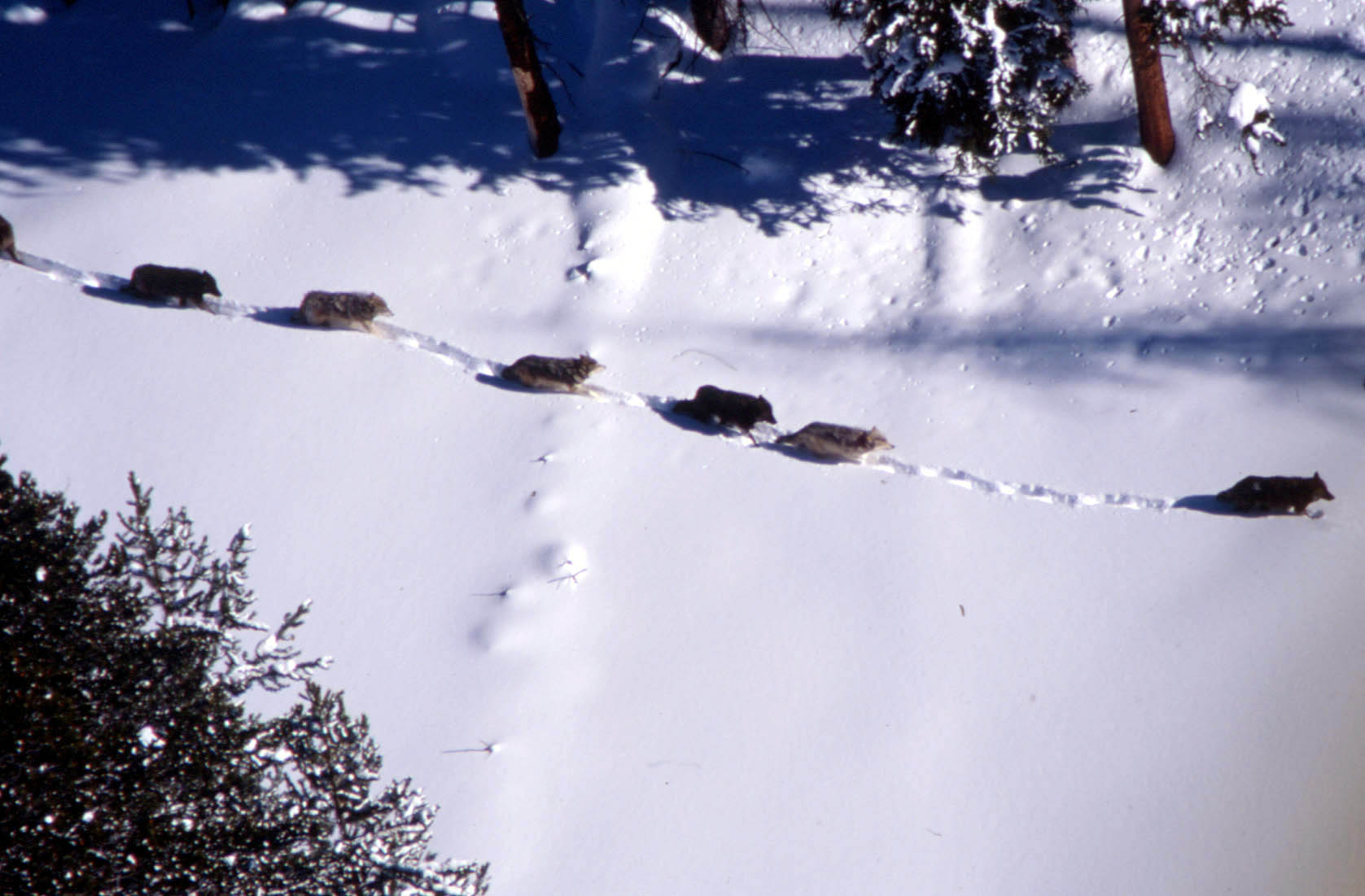
Even so, wildlife and animal protection groups maintain the DNR’s regulations for hound hunting are lax because they generally only require a hunting license for much of the year. The DNR does require a dog training license for parts of the year on certain properties in northern Wisconsin.
Groups also claim hounds harm not only wolves, but public safety. They point to media reports of hunting hounds that attacked hikers in the Nantahala and Green Mountain National Forests. They also cite northern Wisconsin residents who say they felt threatened by hound hunters on or around their properties.
Quaintance said he doesn’t want his hounds to run on private property, noting he does everything to stay off someone’s land because that’s “the ethical thing to do.”
Chequamegon-Nicolet National Forest Supervisor Jenn Youngblood provided the following response to the group’s petition: “While the Chequamegon-Nicolet National Forest provides over 1.5 million acres of important habitat for many species of wildlife in northern Wisconsin, hunting and fishing — including the method of hunting and fishing, is regulated by the State of Wisconsin, Department of Natural Resources.”
A U.S. Forest Service spokesperson didn’t address a follow-up question on whether the group’s request for a ban lies outside the agency’s authority.
In its petition, groups state the Forest Service already bars hunting, including with the use of hounds, at the Northern Great Lakes Visitor Center in Ashland and nearby forest lands. Training of bear hunting dogs is also prohibited within the Mondeaux Flowage Area of the forest in Taylor County between April 1 and Sept. 30 each year.
Wisconsin is one of 18 states that allows the use of hounds to hunt bears, according to the DNR. The president of the Wisconsin Bear Hunters Association did not respond to a request for comment.
Smith with Friends of the Wisconsin Wolf and Wildlife said she hopes to see the Forest Service take up their petition before July 1 when dogs may be trained to hunt bear. If the agency fails to respond in a timely manner, the petition states groups may seek relief in federal court.
“If they ultimately deny our petition, then we can bring them to court,” Adkins said.
Quaintance doesn’t think it’s realistic a ban will move forward.
“If it does, then there’s going to be all kinds of legislation, all kinds of pressure to get a change back to where it was,” he said.
Wisconsin Public Radio, © Copyright 2025, Board of Regents of the University of Wisconsin System and Wisconsin Educational Communications Board.

